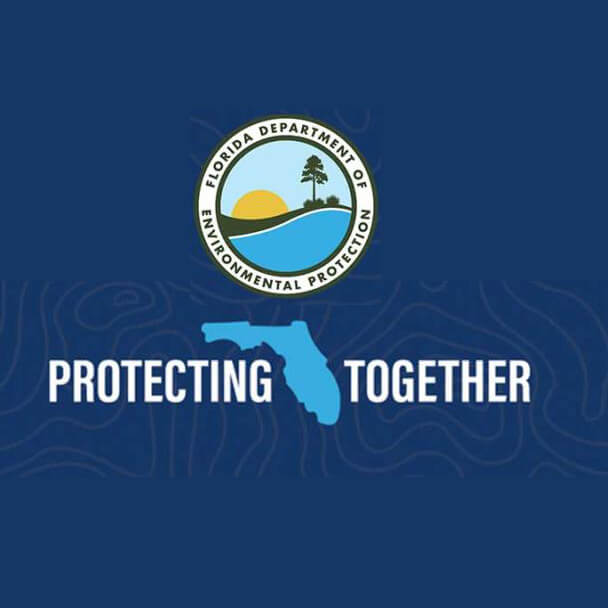The Florida Aquifer Challenge: Safeguarding Against City Water Contamination
Florida's reliance on the Floridan Aquifer, one of the most productive aquifers globally, underscores the significance of protecting this vital water source. The challenge of safeguarding against city water contamination is a complex task, necessitating a thorough understanding of the aquifer's dynamics and the implementation of effective protective measures. This article examines the factual information surrounding the Florida Aquifer and the strategies in place to ensure its integrity against contamination from urban areas.
The Floridan Aquifer: A Critical Water Source
The Floridan Aquifer, extending beneath the entire state of Florida and parts of neighboring states, serves as a primary source of drinking water for millions of Floridians. Comprising a complex system of limestone and sand, the aquifer holds vast amounts of fresh groundwater. The unique geological features of the aquifer allow it to store and transmit water, making it crucial for sustaining both urban and agricultural water supplies.
Urbanization and the Threat of Contamination
As Florida's cities expand and urbanize, the potential for water contamination increases. Urban development introduces various contaminants into the environment, including chemicals from industrial activities, stormwater runoff from impervious surfaces, and pollutants from wastewater. The challenge lies in preventing these contaminants from infiltrating the porous layers of the Floridan Aquifer and compromising the quality of the groundwater within.
Stormwater Management and Containment
Stormwater runoff from urban areas poses a significant risk to the Floridan Aquifer. To address this challenge, Florida has implemented advanced stormwater management practices. These include the use of retention ponds, permeable pavements, and green infrastructure to capture and treat stormwater before it can reach the aquifer. By investing in innovative containment measures, the state aims to minimize the impact of urbanization on groundwater quality.
Wastewater Treatment and Reuse
The proper treatment and disposal of wastewater are crucial components of protecting the Floridan Aquifer. Florida has stringent regulations governing wastewater treatment to prevent the discharge of harmful contaminants into the environment. Additionally, the state promotes wastewater reuse, providing treated wastewater for non-potable purposes such as irrigation. This approach not only conserves water resources but also reduces the potential for contaminants to seep into the aquifer.
Regulatory Measures and Compliance
Florida's regulatory framework for water quality extends to the protection of the Floridan Aquifer. The Florida Department of Environmental Protection (FDEP) oversees regulations and permits related to activities that may impact groundwater. These measures include monitoring and controlling the disposal of hazardous substances, managing underground injection wells, and enforcing strict standards for industrial and agricultural practices. Compliance with these regulations is essential to prevent contamination and maintain the aquifer's integrity.
Groundwater Monitoring and Research
Continuous monitoring of groundwater quality is a cornerstone of Florida's strategy to safeguard the Floridan Aquifer. The state conducts comprehensive groundwater monitoring programs, employing advanced techniques to detect potential contaminants. Research initiatives focus on understanding the movement of groundwater and identifying emerging threats. This proactive approach enables authorities to take preventive action and respond swiftly to any signs of contamination.
Public Awareness and Education
Public awareness plays a crucial role in the protection of the Floridan Aquifer. Florida has implemented educational programs to inform residents, businesses, and industries about the importance of responsible water use and pollution prevention. By fostering a sense of shared responsibility, the state aims to engage the community in efforts to protect the aquifer and ensure its sustainability for future generations.
Challenges and Future Considerations
While Florida has made significant strides in safeguarding the Floridan Aquifer, challenges persist. The increasing demands on water resources, coupled with the potential impacts of climate change, pose ongoing threats. Balancing the need for water availability with the imperative to protect the aquifer requires a dynamic and adaptive approach. Continued research, technological advancements, and collaboration among stakeholders will be crucial in addressing these challenges and ensuring the resilience of Florida's primary water source.
Conclusion
In conclusion, safeguarding against city water contamination is a paramount challenge for Florida, particularly in the context of the Floridan Aquifer. Through a combination of regulatory measures, stormwater management, wastewater treatment practices, and public engagement, the state is actively working to protect this critical water source. The ongoing commitment to research and adaptation will be essential in navigating future challenges and maintaining the resilience of the Floridan Aquifer for the benefit of all Floridians.





